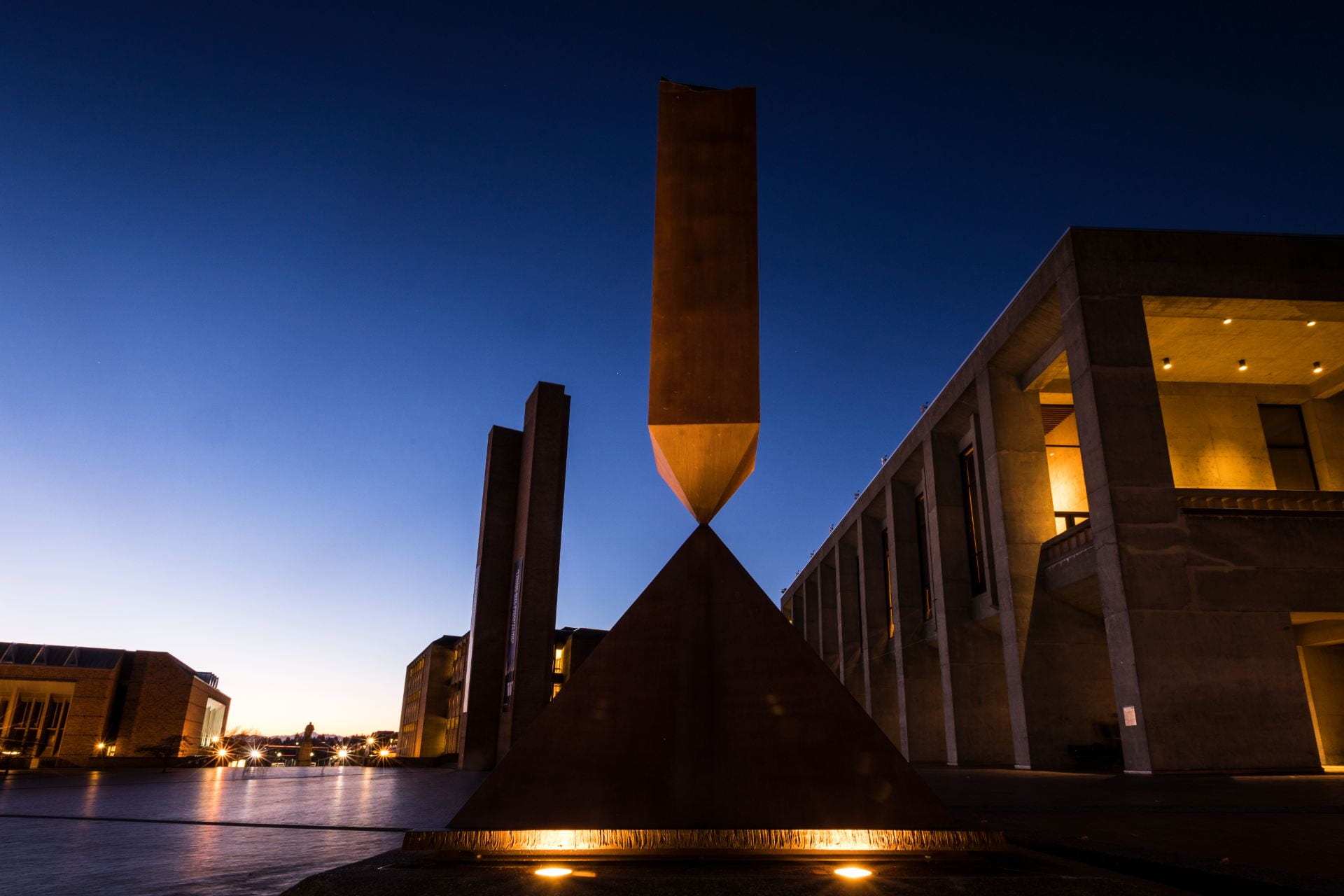The University of Washington’s Center for an Informed Public has announced the second year of an award program that will recognize an individual or organization that has made outstanding contributions, achievements, or bodies of work that significantly resist strategic misinformation, promote an informed society, and strengthen democratic discourse.
The CIP Award for Impact & Excellence, which will highlight those making a positive impact in mitigating the challenges of mis- and disinformation, will come with a $5,000 award for the winner. The recipient of the award will receive a commemorative plaque and is invited to visit the center and give a talk on their work. The award will recognize work in one or more of four categories: research, education, engagement, or law and policy.
A multidisciplinary selection committee, which will review and evaluate all nominations, consists of leaders in the mis- and disinformation field, including one member of the CIP Faculty. The 2022 selection committee consists of:
- Camille François, Columbia University School of Internet & Public Affairs lecturer, Niantic global director of trust and safety
- Steven Livingston, George Washington University professor of media and public affairs and Institute for Data, Democracy and Politics founding director
- Shannon McGregor, University of North Carolina Center for Information, Technology & Public Life senior researcher
- Jevin West, University of Washington Information School associate professor and Center for an Informed Public co-founder
- Brandy Zadrozny, NBC News investigative reporter, NBC News
Scroll down to learn more about the selection committee’s members.
Nominations are due on Sunday, April 24 by 11:59 p.m. PST. For more information about the CIP Award for Excellence, criteria, selection process and eligibility, click here.
The CIP is grateful to the William & Flora Hewlett Foundation and the John S. and James L. Knight Foundation for their foundational support for the Center for an Informed Public’s work and research, which has made this award possible.
- Learn more about the 2021 winner, the Data & Society‘s Disinformation Action Lab, a low-key, behind-the-scenes networked response to mis- and disinformation about the 2020 U.S. Census that serves as a model for future multi-stakeholder collaborations.
2022 Selection Committee Members
Camille François
Lecturer, Columbia University School of International and Public Affairs
Global Director, Trust & Safety, Niantic
 Camille François works on the impacts of technology on society, with an emphasis on cyber conflict and information operations and currently serves as the global director of trust and safety at Niantic and is a lecturer at Columbia University’s School of International and Public Affairs. She was previously the chief innovation officer at Graphika where she oversaw its investigation, analyses and R&D teams and led the company’s work to detect and mitigate disinformation, media manipulation and harassment. François was previously a principal researcher at Google, in the “Jigsaw” team, an innovation unit that builds technology to address global security challenges and protect vulnerable users. François has advised governments and parliamentary committees on both sides of the Atlantic, investigated Russian interference in the 2016 U.S. presidential election on behalf of the U.S. Senate Select Intelligence Committee, and served as a special advisor to the chief technology officer of France.
Camille François works on the impacts of technology on society, with an emphasis on cyber conflict and information operations and currently serves as the global director of trust and safety at Niantic and is a lecturer at Columbia University’s School of International and Public Affairs. She was previously the chief innovation officer at Graphika where she oversaw its investigation, analyses and R&D teams and led the company’s work to detect and mitigate disinformation, media manipulation and harassment. François was previously a principal researcher at Google, in the “Jigsaw” team, an innovation unit that builds technology to address global security challenges and protect vulnerable users. François has advised governments and parliamentary committees on both sides of the Atlantic, investigated Russian interference in the 2016 U.S. presidential election on behalf of the U.S. Senate Select Intelligence Committee, and served as a special advisor to the chief technology officer of France.
François is an affiliate scholar of the Harvard Berkman-Klein Center for Internet and Society, a Fulbright scholar and a Mozilla Fellow. She holds a masters degree in human rights from the French Institute of Political Sciences (Sciences-Po) and a masters degree in international security from the School of International and Public Affairs (SIPA) at Columbia University.
Steven Livingston
Founding Director, Institute for Data, Democracy & Politics
Professor of Media and Public Affairs, The George Washington University
 Steven Livingston is the founding director of the Institute for Data, Democracy & Politics (IDDP) at The George Washington University, a professor of media and public affairs, and a non-resident senior fellow in the Illiberal Studies Program at GW’s Institute for European, Russian, and Eurasian Studies. In 2019, he led GW’s successful bid for a $5 million grant to found IDDP. He served as the director of the Political Communication Program when it was a degree-granting entity within the School of Media and Public Affairs (1996–2002, 2004–2006). In 2004, he served as acting director of SMPA, a position held until August 2006. He also founded the Public Diplomacy Institute (PDI) at GW in 2000 and served as the chairman of the Board of Directors until 2008. PDI is now the Institute for Public Diplomacy and Global Communication.
Steven Livingston is the founding director of the Institute for Data, Democracy & Politics (IDDP) at The George Washington University, a professor of media and public affairs, and a non-resident senior fellow in the Illiberal Studies Program at GW’s Institute for European, Russian, and Eurasian Studies. In 2019, he led GW’s successful bid for a $5 million grant to found IDDP. He served as the director of the Political Communication Program when it was a degree-granting entity within the School of Media and Public Affairs (1996–2002, 2004–2006). In 2004, he served as acting director of SMPA, a position held until August 2006. He also founded the Public Diplomacy Institute (PDI) at GW in 2000 and served as the chairman of the Board of Directors until 2008. PDI is now the Institute for Public Diplomacy and Global Communication.
Livingston’s research and teaching focus on media/information technology and political theory. He is particularly interested in the role of information technologies and media on governance, development, accountability and human rights. In recent years, he has been a visiting senior research fellow at the Free University of Berlin; Canterbury Fellow at the University of Canterbury in Christchurch, New Zealand; a visiting scholar at the Brookings Institution in governance; a visiting professor at the University of St. Gallen in Switzerland; and a visiting professor at the University of Cambridge in Britain. In the fall of 2016, Livingston was appointed a senior fellow at the Carr Center for Human Rights Policy at the Harvard Kennedy School at Harvard University where he served through summer 2019.
Learn more about Livingston’s work.
Shannon McGregor
Assistant Professor, UNC Hussman School of Journalism & Media
Senior Researcher, UNC Center for Information, Technology & Public Life
 Shannon C. McGregor (PhD, University of Texas – Austin) is an assistant professor in the Hussman School of Journalism and Media at the University of North Carolina, and a senior researcher with UNC’s Center for Information, Technology, and Public Life. She is an award winning and internationally recognized communication scholar whose research addresses the role of social media in political processes. In particular, she examines how social media shapes political communication, journalism, public opinion, and epistemologies of public life in democracies.
Shannon C. McGregor (PhD, University of Texas – Austin) is an assistant professor in the Hussman School of Journalism and Media at the University of North Carolina, and a senior researcher with UNC’s Center for Information, Technology, and Public Life. She is an award winning and internationally recognized communication scholar whose research addresses the role of social media in political processes. In particular, she examines how social media shapes political communication, journalism, public opinion, and epistemologies of public life in democracies.
Learn more about McGregor’s work.
Jevin West
Co-founder, Center for an Informed Public
Associate Professor, University of Washington Information School
 West is an associate professor at the University of Washington’s Information School and the inaugural director of the Center for an Informed Public. He is a co-founder of the DataLab, the nexus for research on data science and analytics. West develops data mining techniques for studying the Science of Science, where he investigates the origins of scholarly disciplines, the social and economic biases that drive these disciplines, and the impact of the current publication system. Currently, his research focuses on misinformation specifically in and about science.
West is an associate professor at the University of Washington’s Information School and the inaugural director of the Center for an Informed Public. He is a co-founder of the DataLab, the nexus for research on data science and analytics. West develops data mining techniques for studying the Science of Science, where he investigates the origins of scholarly disciplines, the social and economic biases that drive these disciplines, and the impact of the current publication system. Currently, his research focuses on misinformation specifically in and about science.
Brandy Zadrozny
Investigative Reporter, NBC News
Fellow, Harvard Kennedy School Shorenstein Center
 Brandy Zadrozny is an award-winning investigative and features reporter for NBC News where she covers misinformation, extremism, and the internet. She spent 2020 tracking misinformation around COVID-19 and reporting on the disinformation campaign around the election that culminated in a siege on the U.S. Capitol. Previously, Zadrozny was at The Daily Beast where she covered politics and the internet as a senior reporter. She has an MLIS and in a former life, worked as a librarian and instructor in news, college, and public libraries.
Brandy Zadrozny is an award-winning investigative and features reporter for NBC News where she covers misinformation, extremism, and the internet. She spent 2020 tracking misinformation around COVID-19 and reporting on the disinformation campaign around the election that culminated in a siege on the U.S. Capitol. Previously, Zadrozny was at The Daily Beast where she covered politics and the internet as a senior reporter. She has an MLIS and in a former life, worked as a librarian and instructor in news, college, and public libraries.




